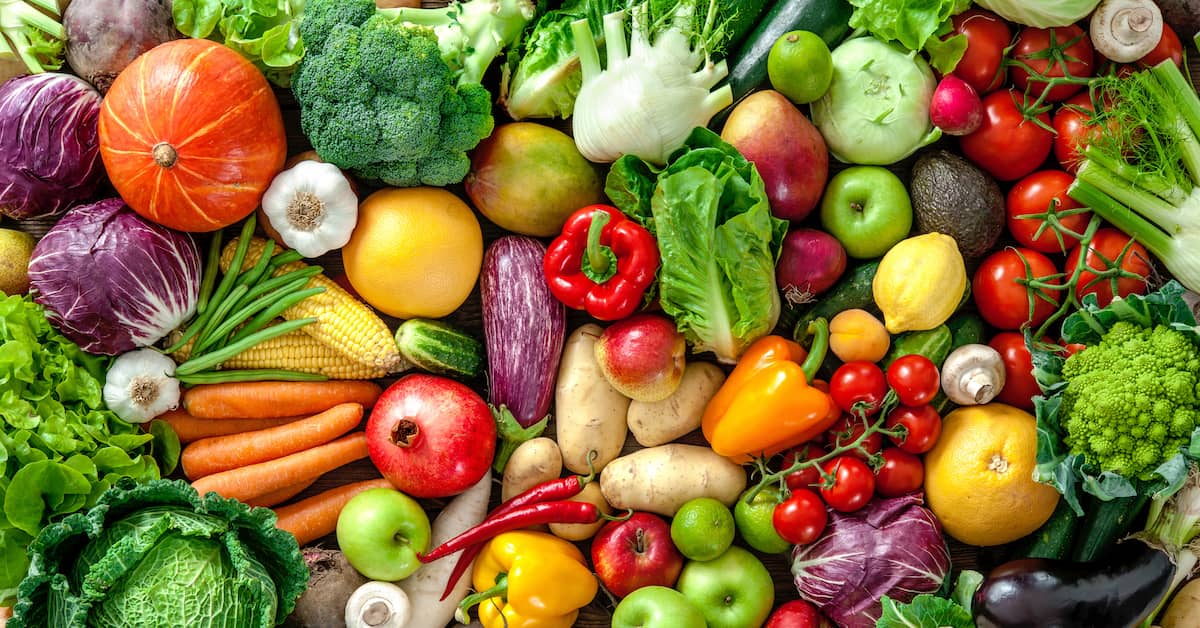
Unfortunately, the vast majority of Americans-- nine out of ten-- aren’t eating enough of these food groups, according to both the Centers for Disease Control and the U.S. Department of Agriculture.
So, how many fruits and vegetables do you need to make a difference in your longevity? Let’s take a look at the latest research.
A few small studies linked a lower intake of fruits and vegetables to a greater chance of death, but the first large scale analysis of the link wasn't published until 2014.
The British Medical Journal article looked at 16 studies from the U.S. and other countries involving 833,234 people. They followed participants for up to 26 years during which there were 56,423 deaths. Researchers found that for every additional portion of fruits and vegetables consumed, there was a lower risk of premature death up to a threshold of five servings (400 grams or 14 ounces) per day. Interestingly, beyond five servings there was no additional benefit in terms of mortality.
But this study wasn’t the last word on the matter. It looked like the five-a-day message was spot on until another study led by Imperial College London was published three years later.
Reduces Premature Death by 31 Percent
The Imperial College researchers looked at 95 studies which included up to two million people. They found the risk of mortality was reduced by each portion of fruits and vegetables, up to ten servings a day. This higher figure would lower the risk of premature death by 31 percent compared to eating no fruits and vegetables at all.In fact, the researchers estimated that 5.6 million premature deaths worldwide are attributable to a fruit and vegetable intake below 500 grams a day, rising to 7.8 million premature deaths for those consuming below 800 grams a day.
So, should we aim for five or ten servings?
A group from the Harvard T. H. Chan School of Public Health in Boston tried to get some clarity. Their findings were published on the 1st of March.
Five a Day is Optimal
The Harvard researchers followed 66,719 female nurses aged 30 to 55, and 42,016 male health professionals aged 40 to 75 who were free of heart disease, diabetes and cancer at the outset of the study.Participants had to fill out a food frequency questionnaire every two to four years for about 30 years, during which there were 33,898 deaths. After adjusting for factors that could influence the results, the researchers found the more fruits and vegetables people ate, the lower the mortality rate, but only up to five servings—very similar results to the 2014 review. Above that level, "higher intake was not associated with additional risk reduction," they wrote.
Compared to health professionals consuming two servings a day, daily intake of five servings lowered overall risk of death by 13 percent. Specifically, researchers found a 12 percent reduction in death by heart disease and stroke, a ten percent risk reduction in death by cancer, and a sizable 35 percent risk reduction in deaths from respiratory diseases such as chronic obstructive pulmonary disease.
The researchers found the optimal balance of fruits and vegetables linked to the greatest longevity was two portions of fruit and three portions of vegetables (per day).
Now, my first thought was that a study based on health professionals, and what they claimed to eat, is not the last word. Fortunately, there’s more. . .
Findings Confirmed in two Million People
The Harvard group also compared their findings from data on 24 other studies that included almost two million people. This showed the same 13 percent drop in mortality from consuming five servings of fruits and vegetables a day.In terms of the types of foods that provided the best protection, they found green, leafy vegetables such as spinach, kale and lettuce, and fruits and vegetables rich in beta carotene and vitamin C such as citrus fruits, berries and carrots were beneficial.
But starchy vegetables such as peas, corn and potatoes, as well as fruit juices, were not linked to a reduced risk of death.
Anne Thorndike, M.D., M.P.H., chair of the American Heart Association’s nutrition committee and an associate professor of medicine at Harvard Medical School in Boston, said, "This research provides strong evidence for the lifelong benefits of eating fruits and vegetables and suggests a goal amount to consume daily for ideal health.
"Fruits and vegetables are naturally packaged sources of nutrients that can be included in most meals and snacks, and they are essential for keeping our hearts and bodies healthy."
I agree this evidence is remarkably strong, and the recommendations are spot on. I’d also add that making sure the produce is organic will likely give you even more "bonus years."
- https://pubmed.ncbi.nlm.nih.gov/25073782/ Fruit and vegetable consumption and mortality from all causes, cardiovascular disease, and cancer: systematic review and dose-response meta-analysis of prospective cohort studies
- https://academic.oup.com/ije/article/46/3/1029/3039477 Fruit and vegetable intake and the risk of cardiovascular disease, total cancer and all-cause mortality—a systematic review and dose-response meta-analysis of prospective studies
- https://www.imperial.ac.uk/news/177778/eating-more-fruits-vegetables-prevent-millions/
- https://www.ahajournals.org/doi/10.1161/CIRCULATIONAHA.120.048996 Fruit and Vegetable Intake and Mortality: Results From 2 Prospective Cohort Studies of US Men and Women and a Meta-Analysis of 26 Cohort Studies
- https://newsroom.heart.org/news/the-right-5-a-day-mix-is-2-fruit-and-3-vegetable-servings-for-longer-life
